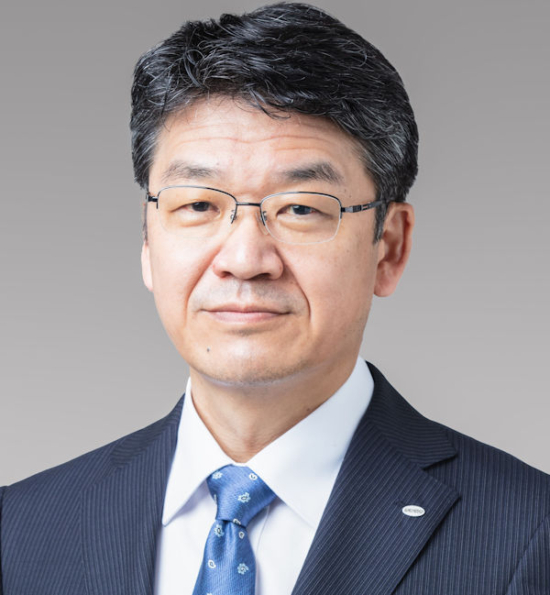Denso announces €63 billion electromobility R&D investment
 Shinnosuke Hayashi, president & COO (Photo: Denso)
Shinnosuke Hayashi, president & COO (Photo: Denso)
In his first European public appearance as president and chief operating officer of automotive technology supplier Denso, Shinnosuke Hayashi revealed that the business plans to invest 63 billion euros (£58.9 billion, US$68.0 billion) in research and development over the next ten years in line with its pursuit of zero emissions and zero traffic fatalities within mobility and society.
During an announcement at IAA Mobility in Munich, the recently appointed Denso president highlighted the automotive industry’s role in tackling carbon emissions, calling upon the sector to find collaborative solutions to make transport as a whole safer and more environmentally friendly. Hayashi opined that businesses such as Denso have a duty to preserve the planet for future generations through the creation of advanced technologies that overcome the twin challenges of environmental pollution and traffic fatalities.
To facilitate the shift towards electric-powered engines, Denso will invest in developing electrification technologies and in further expanding its product portfolio. Specifically, the business is ramping up its global production capacity and is on track to produce around 12 million inverters per year by 2025, while consolidating its expertise within vehicle semiconductor production and thermal management systems. Advancements within these areas will support improved electric vehicle functionality and range, paving the way toward electrification.
Solving the planet’s problems
Denso recently unveiled plans to achieve carbon neutrality throughout the entirety of its supply chain by 2050. It has already attained this (with credits) within its facilities across Japan and Europe and is on course to achieve operational carbon neutrality by 2035. Furthermore, during his speech, Hayashi emphasised the transformative impact of technologies such as carbon capture and recycling as well as the implementation of Solid Oxide Fuel Cell (SOFC) and Solid Oxide Electrolysis Cell (SOEC) technologies at Denso’s Japanese facilities. The company intends to introduce these technologies into selected European facilities going forward.
“Throughout history, human beings have pulled together to rise to significant challenges. Against one of the biggest challenges humanity has ever faced, it is vital that organisations like Denso collaborate and harmonise with partners across the globe to solve the problems facing our planet,” said Shinnosuke Hayashi.
“We believe mobility has an important role to play within this journey and wish to lead the industry in the development of new technologies and solutions to achieve safe and high-value mobility and manufacturing,” he continued. “We’re making huge strides in our own manufacturing activities and by doing this, we believe we can empower the entire industry to do the same, to the benefit of society over the medium and long term.”
37-year rise through the ranks
Hayashi also referenced his own personal journey within the Denso organisation and how this has helped to inspire his vision for the company. After joining Denso as an engineer in 1986, he worked on the development, mass production, and global business development of the engine ECU of the world’s first fully electronic control diesel common rail system.
Over a 37-year career, he has risen through the company ranks to make an impact across the wider Denso Group. In 2015, he was named executive director of Denso Corporation, where he oversaw the development of an electronics platform for integrated control of the entire vehicle system, while also playing a lead role in business reform and new product planning within the mobility electronics field.
One year after becoming chief software officer in 2020, he was promoted to senior executive officer of Denso Corporation, before being appointed as the head of the Mobility Electronics Business Group a year later. Denso says Hayashi has since “established a strong reputation for driving company-wide reforms” and is a “passionate advocate” for the integration of software into the Denso portfolio of products and solutions.





Comments